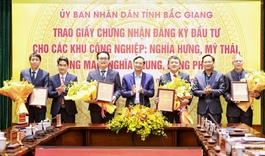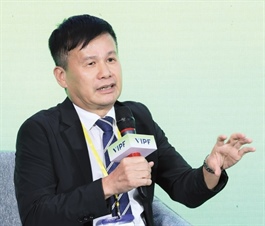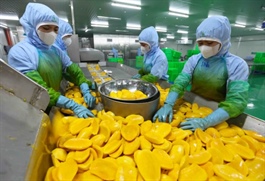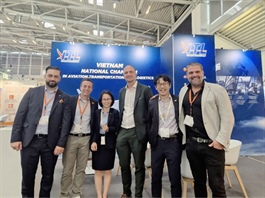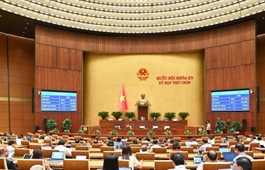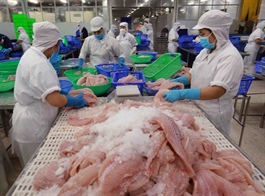Energy groups want clarity on COD status
Energy groups want clarity on COD status
Vietnam Electricity is being asked to urgently resolve long-standing disputes related to commercial operation dates and fixed tariff entitlements of wind and solar power projects, warning that continued delays risk undermining investor confidence and the sector’s financial stability.

Ongoing uncertainty around operation dates and payments pose a threat to project viability, photo Le Toan |
The appeal, made to the prime minister by the Ministry of Industry and Trade (MoIT), follows a recent report from the ministry detailing unresolved issues that have affected 173 renewable energy projects which reached commercial operation dates (COD) before or in 2021, but have yet to receive formal acceptance documentation for their commissioning at the time of COD.
These projects, the MoIT noted, remain in limbo despite Resolution No.233/NQ-CP issued in December 2024, which tasked local authorities with removing obstacles for renewable energy investors.
Investor concerns have grown more acute as Vietnam Electricity (EVN), through its subsidiary Electricity Power Trading Company (EPTC), has reportedly proposed a retrospective adjustment of COD recognition, linking it to the date of commissioning approval rather than the actual operation date. This proposal, investors argue, violates the terms of power purchase agreements (PPAs) that remain legally binding.
Moreover, since January, EPTC has unilaterally withheld partial electricity payments based on a temporary tariff regime implemented without any formal communication to project owners. This has severely disrupted cash flows, causing several developers to default on loan obligations, miss payroll, and suspend maintenance and operational expenditures.
“We are facing a critical liquidity crisis,” stated one consortium of investors in a joint petition to the government. “Electricity revenue is our only financial stream. Any interruption in payment jeopardises our debt servicing capacity, tax obligations, and operational continuity.”
In recent weeks, domestic and foreign developers, along with the Binh Thuan Wind and Solar Association, have submitted an emergency petition to relevant authorities again after the first petition in March. The latest petition reiterates investor demands including upholding the original CODs as previously accepted, ensuring EVN honours its contractual obligations by making full, timely payments; and refraining from retroactively applying new regulations regarding COD conditions or feed-in tariff (FiT) eligibility.
Investors further stressed that EPTC’s temporary payment scheme, based on either the original FiT or the ceiling price of the transitional tariffs, lacks legal standing and fails to resolve core concerns. More worryingly, they argue, EPTC’s proposal that PPAs be revised after local authorities issue guidance creates significant legal uncertainty and undermines trust in contractual commitments.
“There is no legal basis for withholding part of the payment, applying a temporary tariff not stipulated in the signed contract, or requiring investors to amend existing agreements,” the petition states.
The dispute escalated following a government meeting on April 15 chaired by Deputy Prime Minister Nguyen Hoa Binh, during which EVN general director Nguyen Anh Tuan confirmed that investors rejected the utility’s proposed FiT resolution framework. Parallel dialogues with foreign business groups such as the European and Thai chambers of commerce have also revealed deep concern over potential legal disputes that could damage Vietnam’s investment climate.
The MoIT has acknowledged that although EVN has submitted several reports, their contents do not meet the requirements set by Resolution 233. Specifically, the ministry said EVN’s proposals lack comprehensive economic and social impact assessments, fail to minimise legal risks, and do not provide a balanced solution that protects both state and investor interests.
Given these shortcomings, the MoIT has issued multiple reminders urging EVN to complete its policy proposal on FiT entitlements in accordance with legal and regulatory frameworks. In its latest recommendation, it asked the deputy prime minister to instruct EVN to immediately finalise its response to the issues raised by investors, particularly those involving large-scale rooftop solar projects on agricultural and forestry land under farm investment models.
For cases where commissioning was delayed due to the 2020 pandemic, the ministry also urged EVN to re-examine all relevant documentation and submit lawful, practical proposals.
Crucially, the MoIT emphasised that EVN must assume full responsibility for its chosen resolution strategy, ensuring it complies with current laws, minimises dispute risk, and sustains an attractive investment environment for Vietnam’s renewable energy sector.
From the investor perspective, continued uncertainty surrounding COD recognition and FIT payments poses an existential threat to project viability. Many developers have financed their projects with loans from domestic and international banks, based on the expectation of FIT-based revenue streams guaranteed by signed PPAs. Any unilateral deviation from those agreements not only affects operational viability but could trigger legal action across jurisdictions.
The broader implication, stakeholders warn, is a chilling effect on renewables investment at a time when the country is seeking to accelerate its energy transition and achieve net-zero emissions.
- 09:59 17/06/2025




